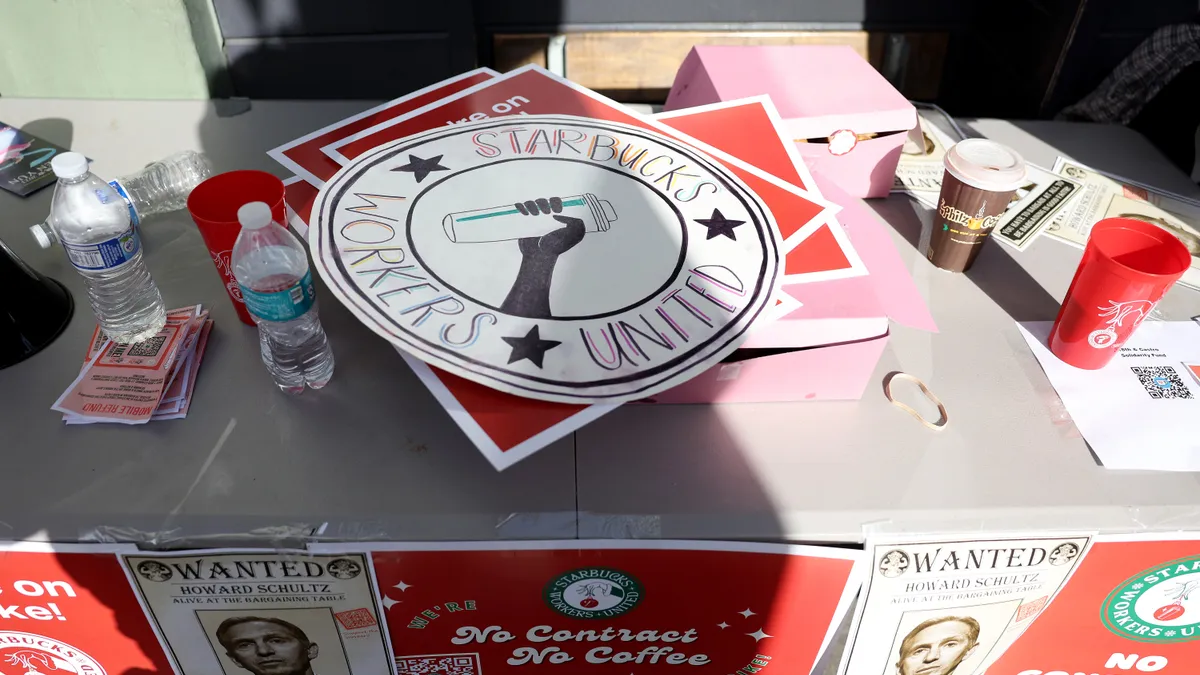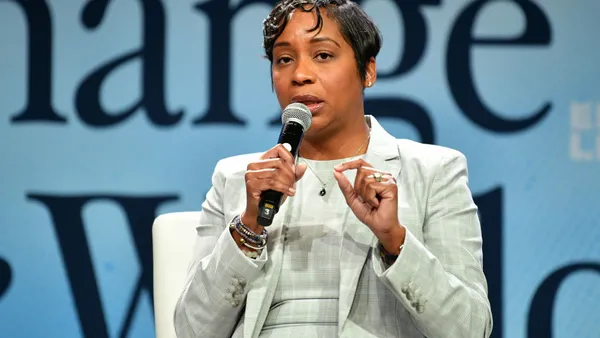Dive Brief:
- In the latest decision against Starbucks Corp., a National Labor Relations Board administrative law judge ruled on Tuesday that the coffee chain violated federal labor law when local supervisors said the company could not cover abortion-related travel expenses for organizing workers and could not extend other benefits.
- Supervisors at a Wisconsin store violated the National Labor Relations Act by telling workers they would not receive reimbursement for travel expenses related to abortion care as announced if they formed a union and failing to explain that those benefits would be postponed solely “to avoid the appearance of influencing the election’s outcome,” NLRB Administrative Law Judge Charles Muhl ruled. Starbucks in May 2022 said it would cover travel costs for workers who had to go more than 100 miles to access an abortion in response to the Supreme Court’s decision to overturn Roe v. Wade.
- Supervisors also violated the NLRA by threatening to leave the store, implying that working conditions would deteriorate, if employees unionized; characterizing workers as “aggressive” for their responses to threats of their benefits being negatively affected by unionization; and for warning unionization would “bring negative changes” to the store, the ruling said.
Dive Insight:
Starbucks has been hit with a litany of labor-related complaints as its workers across the country have unionized. The Starbucks Workers Union now represents more than 360 stores, per the union’s website.
A Starbucks spokesperson said the company is reviewing Muhl’s decision and “evaluating potential next steps.”
“To ensure compliance with company policies and the complex patchwork of U.S. labor and employment law, Starbucks launched a comprehensive management training program and established a dedicated labor relations team last fall,” the spokesperson said in the emailed statement.
In September, NLRB said four St. Louis-area Starbucks locations violated federal labor law when managers threatened to withhold planned raises and benefits additions if workers unionized. One store banned workers from wearing pro-union T-shirts under its dress code policy and posted a directive that seemingly barred pro-union “sip-in” demonstrations, actions that have “a reasonable tendency to chill employees from exercising their Section 7 rights,” NLRB said.
In August, an NLRB administrative law judge ruled that Starbucks’ workplace civility rule was “overbroad” and overstepped the NLRA. The judge recommended Starbucks rescind its “How We Communicate” workplace policy in light of workers’ complaints of anti-union activity.
In March, an NLRB administrative law judge said Starbucks committed “egregious” misconduct at Buffalo, New York-area stores during a highly publicized unionization effort, including surveillance and photography of employees participating in union activity; temporarily closing stores; and threatening to withhold benefits from organizing workers.















